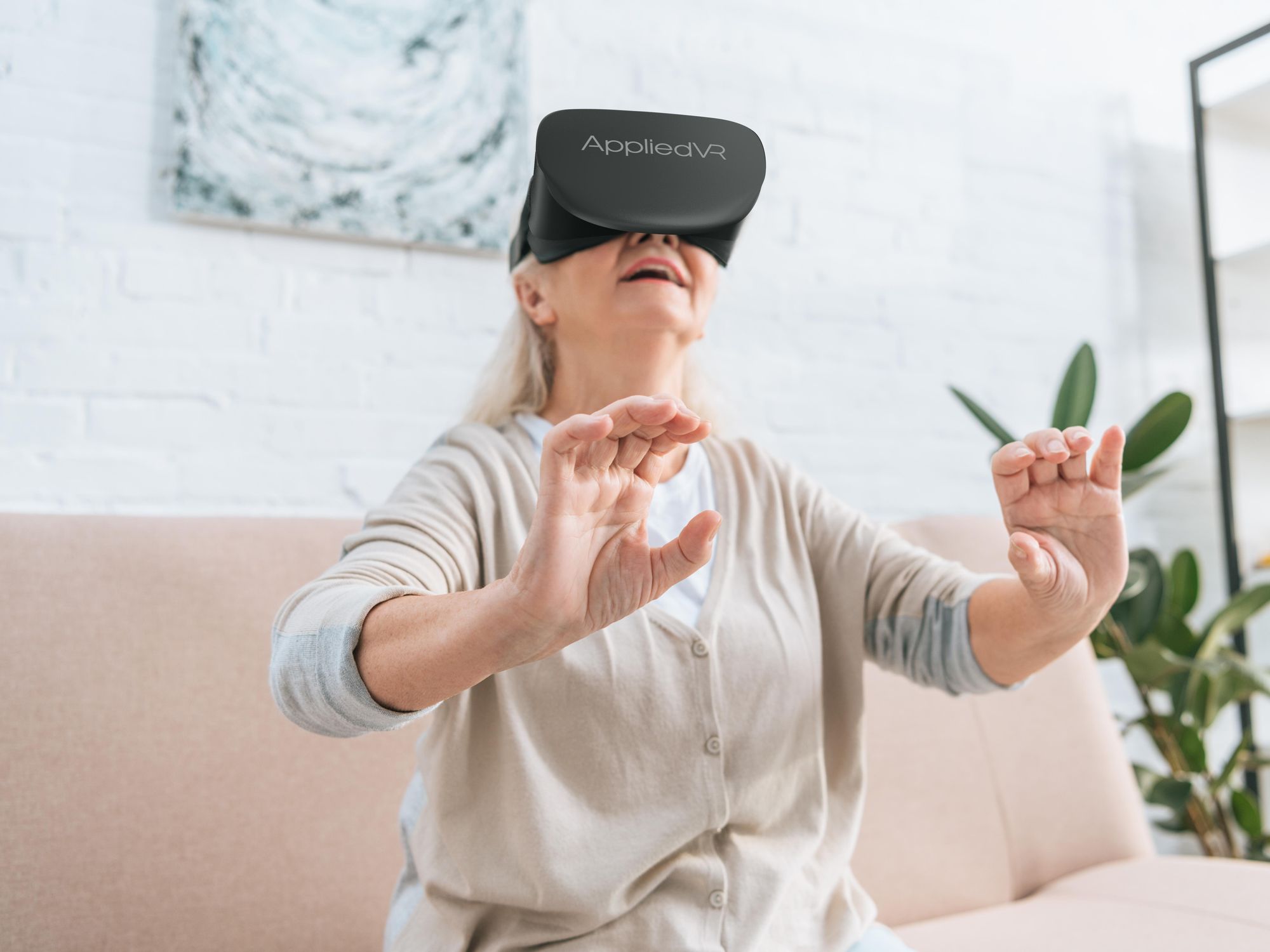This Startup Made a VR Experience to Reduce Chronic Pain
Breanna de Vera is dot.LA's editorial intern. She is currently a senior at the University of Southern California, studying journalism and English literature. She previously reported for the campus publications The Daily Trojan and Annenberg Media.

Josh Sackman, co-founder and president of AppliedVR, was born with congenital joint ligament abnormalities that left him with weak joints and introduced him early on to the world of health care.
The chronic pain sent him to hospital and doctors offices over the years. His surgeries and treatments often left him stressed and feeling isolated.
"Chronic pain is something that impacts 100 million Americans, just in the U.S. alone," said Sackman. "And [it affects] 1.5 billion people worldwide, costing $635 billion more than heart disease, diabetes and cancer combined."
Sackman recalls his eight-year-old self coming out of surgery in pain. He has had reconstructive surgery on his shoulders three times and several other related surgeries. His experiences inspired him to build a company that will lessen and make the chronic pain more manageable for others. He has had reconstructive surgery on his shoulder three times and several other related surgeries.
AppliedVR's products use virtual reality to take patients through mental exercises that help them cope. It's an option that could appeal, especially for those seeking alternatives to heavy drugs. The startup raised $29 million to continue developing products that help patients alleviate chronic pain, postoperative pain and anxiety. It's competing against companies like San Francisco-based Karuna Labs and Massachusetts-based XR Labs, which are also looking to treat chronic pain with virtual reality solutions.
"The pandemic was really disruptive [for health care]," Sackman said. "The typical care patients receive for chronic pain includes physical therapy visits with their doctors, often [also] injections, implants, surgical procedures and a number of other things that were just off access… We are addressing their quality of life, making fundamental improvements to how they're able to live their life, especially when dealing with pain, stress and isolation, more than ever."
Sackman and his co-founders Matthew Stoudt and David Sackman launched the Los Angeles-based company at the start of 2015. They had a shared interest in VR, but from a variety of perspectives. Stoudt's background was in advertising technology, and after watching a TedX talk on virtual reality, he saw a future in which screens in hospitals could do so much more than advertise. David Sackman previously worked at Lieberman Research, where he learned that VR has the ability to change behavior and build empathy.
"Virtual reality has so much promise and potential through all the studies and research we're seeing, but there were limitations around the hardware in terms of the form factor and pricing and usability," Josh Sackman said. "Our vision kind of came from translating concepts and design principles that have been proven in academic labs and translating them into real world applications."
After launching, the three got to work on their first product, SootheVR. It's already on the market, used by hospitals as a general wellness tool to help patients relax and be distracted from their pain. AppliedVR is expecting FDA approval for another version of SootheVR by the end of the year.
AppliedVR plans on using the Series A funding to further develop EaseVRx, the first virtual reality prescription treatment granted a "breakthrough device designation" by the FDA. This designation provides it closer access to the FDA, and could also mean it is covered by Medicare.
EaseVRx is a daily program that targets chronic low back pain. Patients put on the VR set and participate in an eight-week program that teaches different positive habits and coping skills to approach their pain management. The company will also double their team in the next year across all teams, including engineering and product marketing, said Josh Sackman.
The round includes investors F-Prime Capital, JAZZ Venture Partners, Sway Ventures, GSR Ventures, Magnetic Ventures and Cedars-Sinai. Many of these funds have other investments in the health care field, and it brings a diverse perspective to AppliedVR's decisions, Josh Sackman said.
"People very rarely think of the board, or their investor base, as part of their team," Josh Sackman said. "We try to, and really think through the same criteria of who we would hire, would bring into the business."
- VIrtual Reality Could Be the Future of Pain Management - dot.LA ›
- This LA Startup Wants to Treat Pain with Virtual Reality - dot.LA ›
- AppliedVR's Virtual Pain Therapy Platform Gets FDA Approval - dot.LA ›
- SpCal VR Therapy Progresses to be Covered by Medicaid - dot.LA ›
Breanna de Vera is dot.LA's editorial intern. She is currently a senior at the University of Southern California, studying journalism and English literature. She previously reported for the campus publications The Daily Trojan and Annenberg Media.



 Image Source: Revel
Image Source: Revel
